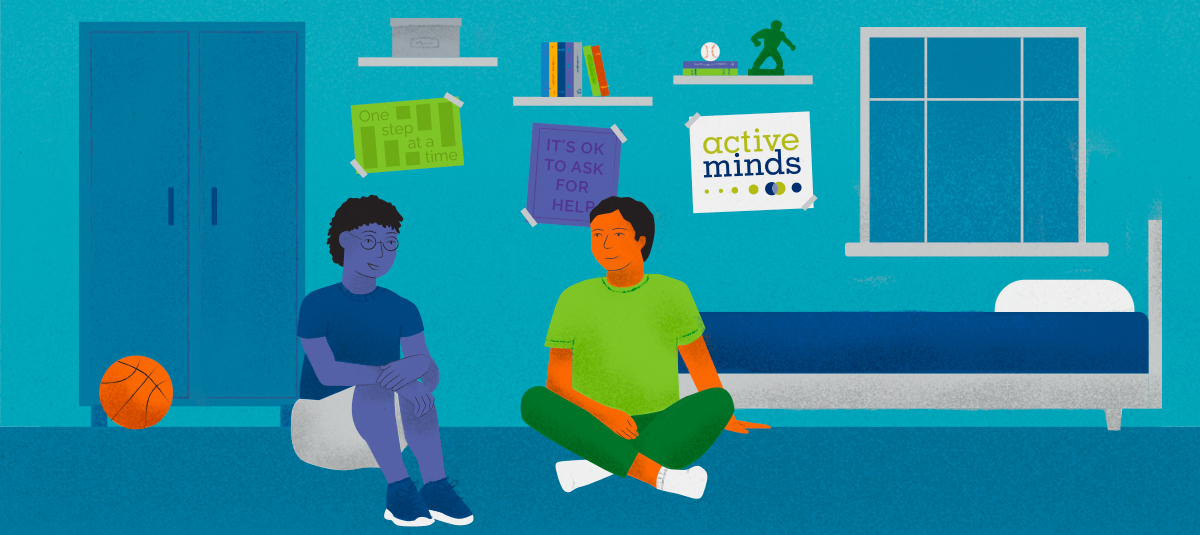I was very emotional when I was a kid and was so hard on myself for being that way. I needed someone to help me understand my feelings and how they affected me. Instead, I used those emotions against myself, creating a sense of disconnect. Back then, mental health wasn’t always openly discussed when I was young, especially for boys and men, due to stigma. Now, as a mental health speaker, I aim to help kids understand themselves and build positive inner relationships. I share my own lived experiences, including depression and low self-esteem, with them because I know how important it is for young people to understand the importance of caring for themselves mentally and emotionally.
I struggled deeply with my mental health when I was young, but I hid it due to the cultural stigmas around that time. I experienced several significant deaths in my life, but because I didn’t know it was okay to ask for help, my grief internalized into depression and anxiety that lasted well into my young adulthood.
Several factors prevented me from getting the help that I needed. Shame. Fear of abandonment. Judgment. Self-hate. But the most significant thing had to be the stigma of men and mental health. To normalize talking about how we’re doing, we must recognize that these emotions play intensely into our ability to be vulnerable and open.
The tools I teach aim to help promote positive mental health, but no tool is more powerful than asking for support when needed. I find that boys and young men struggle with this area of mental health, in particular. “You’re weak if you ask for help,” gets internalized into, “I have to do this on my own.” They have taken societal beliefs and turned them into self-limiting beliefs. I believe that self-determination is powerful, but because of how much we push the idea of solving problems ourselves, many people miss out on community and support when they need it the most.
One strategy I teach young people is identifying their self-limiting beliefs and the consequences they have on them. Once they recognize these patterns in their thinking, they can reframe them into thoughts that help them. I did this for myself, and it made a massive difference in my life. I took my previous conception that asking for help was weak and that I needed to handle things alone and turned it into a belief that asking for help is smart. This mindset shift helped me feel more empowered in taking care of myself. Sometimes taking care of yourself means getting the help you need. It may be hard to ask for help initially, but it is a skill you can improve through practice, time, and effort. I would also offer that self-compassion is critical if you’re not used to asking for help or talking about how you feel. It will be challenging, but living a life of silent suffering is much more complicated and doesn’t provide you with any rewards.
For those looking to support youth in talking about how they’re doing, combating shame and fear from the stigmas around mental health is challenging but crucial work. One thing to consider is the importance of safety. Asking people to be vulnerable for the sake of being vulnerable can set kids up for disaster, especially if they come from communities where these stigmas deeply affect how people think. Instead, asking kids to identify one to three people in their lives that they feel comfortable and safe with is a great way to start. I let kids know that sometimes they may not be your parents or best friends. If they are safe, coaches, teachers, older siblings, or cousins can also be great additions to their support network.
It’s also critical to seek out stories of everyday struggles with mental health so that we all get more comfortable using descriptive language around our feelings. My goal in life is to be a public figure for kids who does that. I hope the next generation of children, especially young boys, have the tools and resources to speak openly about their mental health without the fear or stigma men often encounter.
I believe mental health is more important than ever, and we all can do our part in making it a more mainstream conversation. If someone you know is struggling with their mental health, do not judge or try to fix them. Jumping in to fix things can often push people away when they need someone to listen. Validate their feelings, offer them resources if they are open, and extend compassion and support first. Feeling validated and knowing you are not alone is huge for people going through difficult times.
Finally, take care of yourselves, my friends. In a world where things are tough, and there are many battles to fight, being your own best friend will get you very far. Life is full of struggles that can help you grow but suffering in silence is not one of them.




